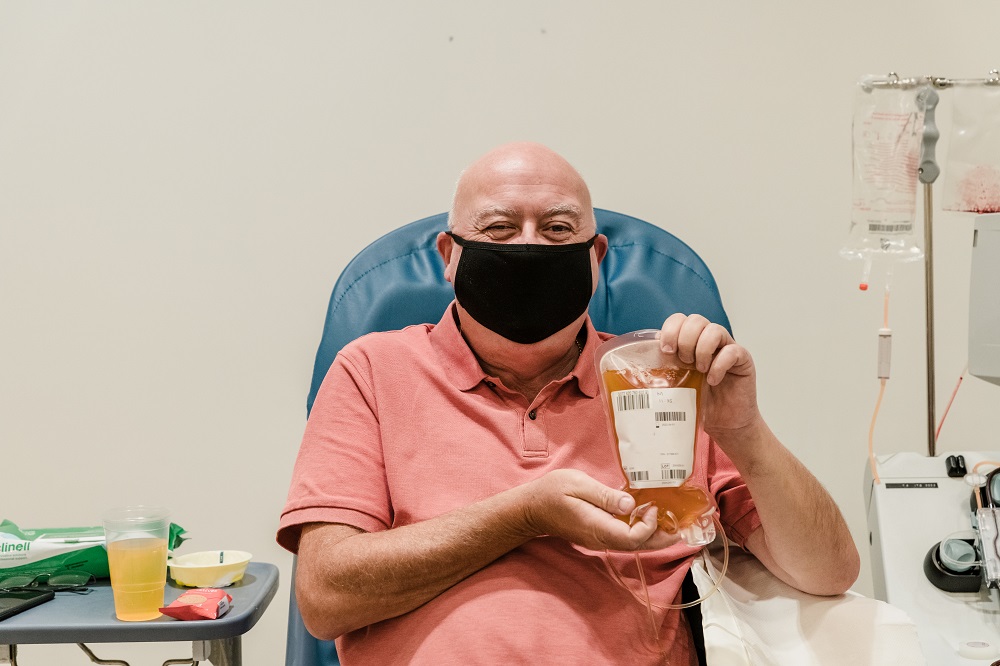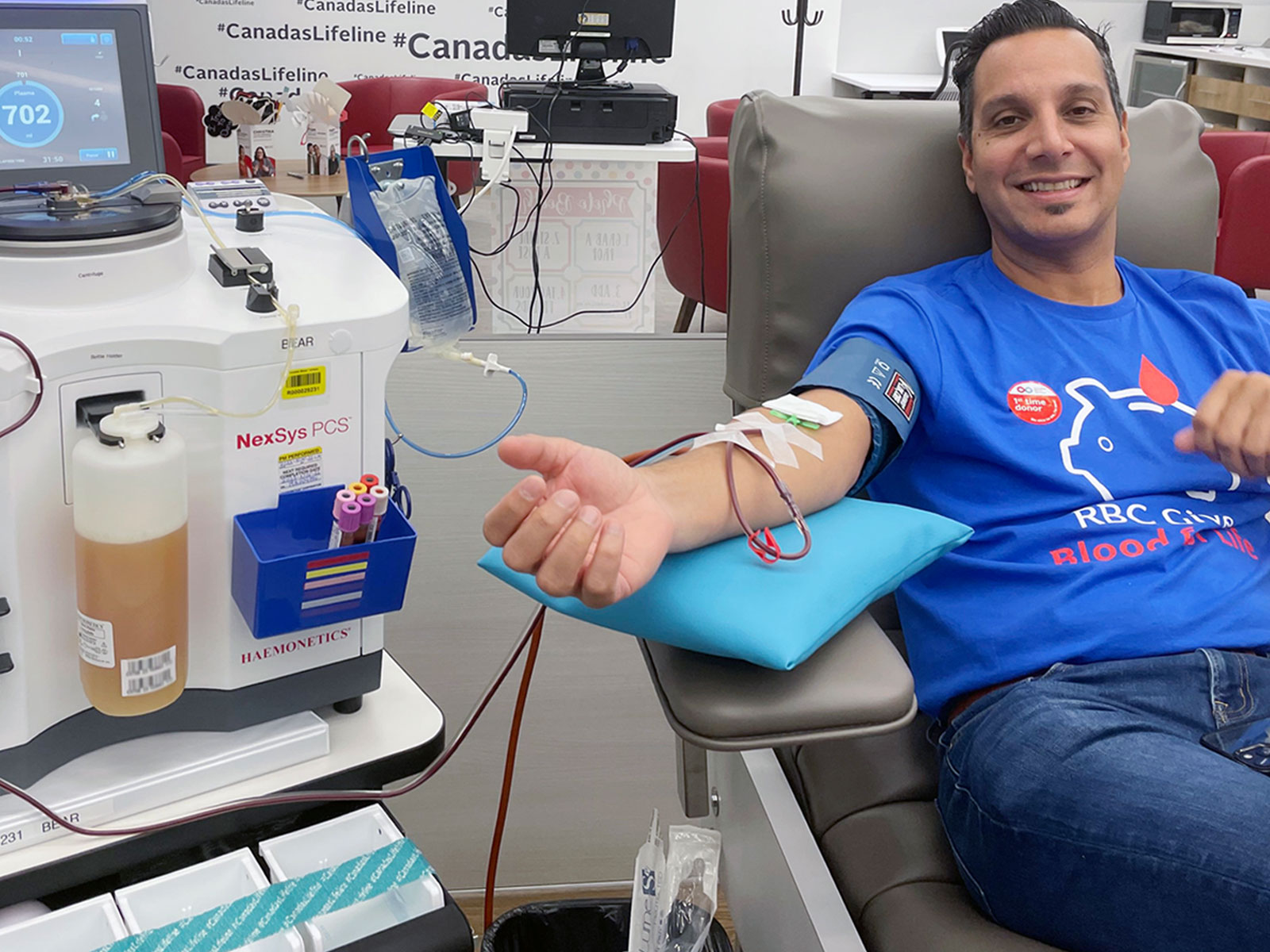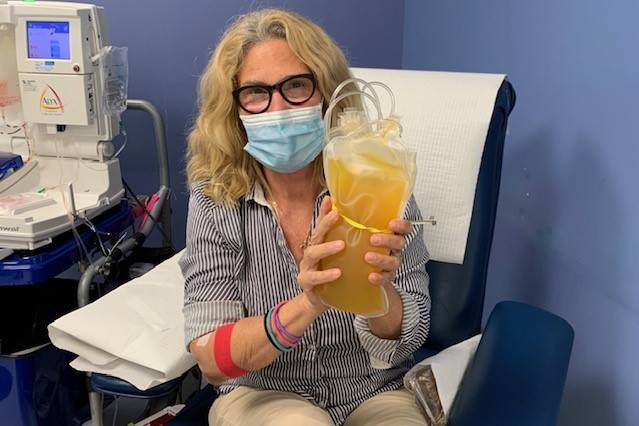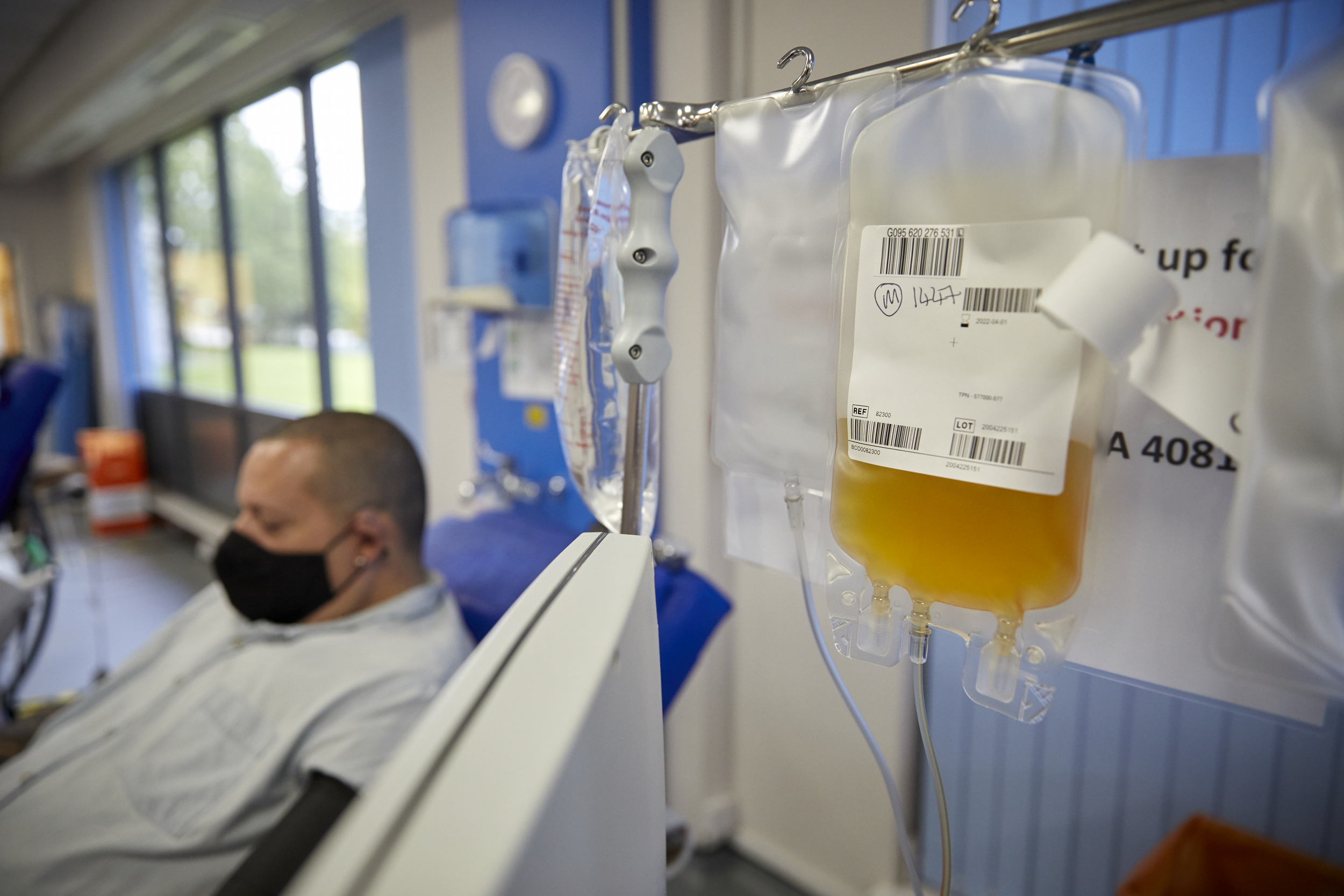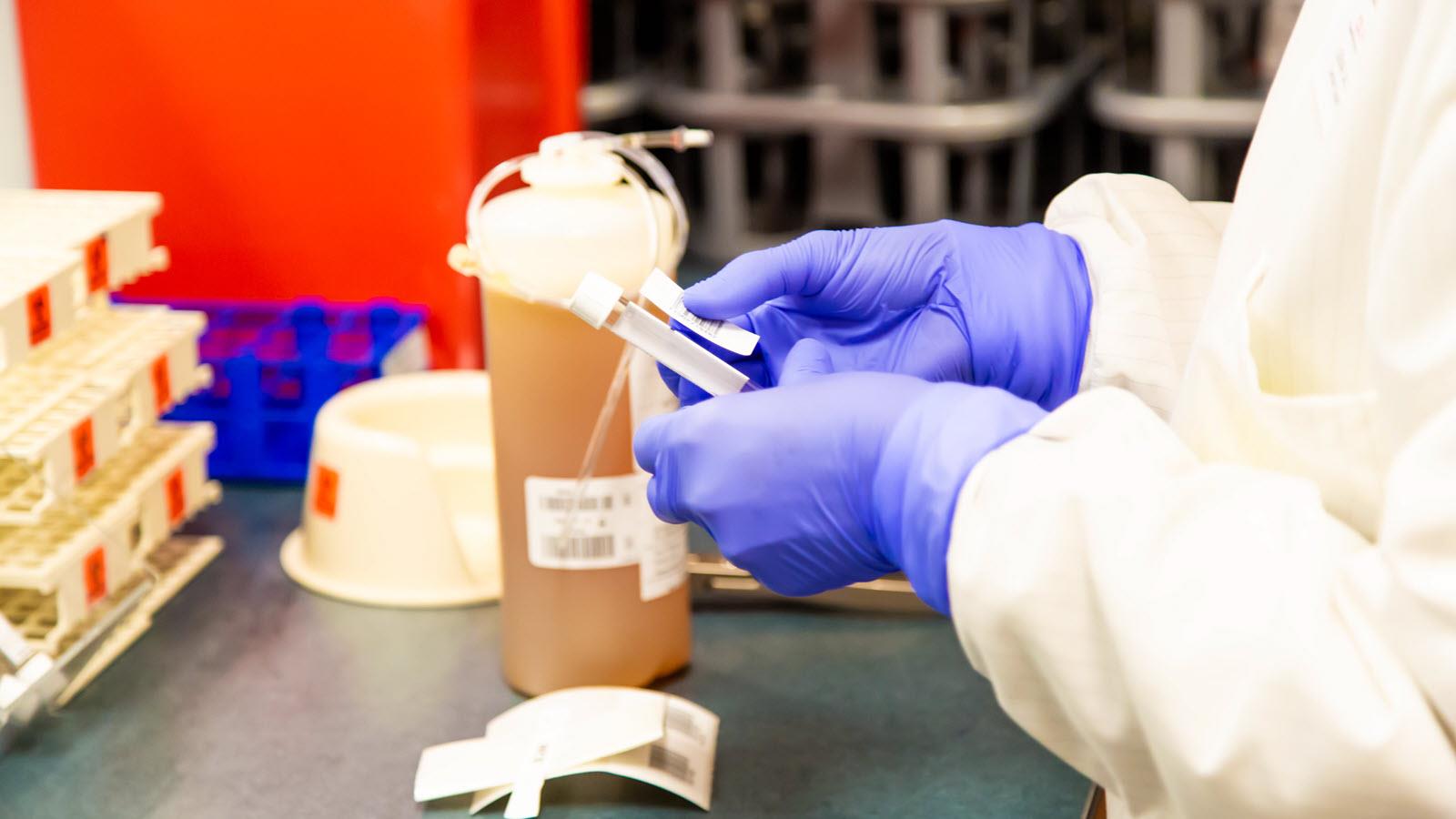Where To Donate Plasma In Kansas City
Where to donate plasma in Kansas City is a question with multiple answers, but the impact of your donation remains the same - it can save lives. Visit one of these centers today and become a vital part of the life-saving process.
Author:Mia ThompsonReviewer:Calvin PenwellMar 27, 202495 Shares5.5K Views
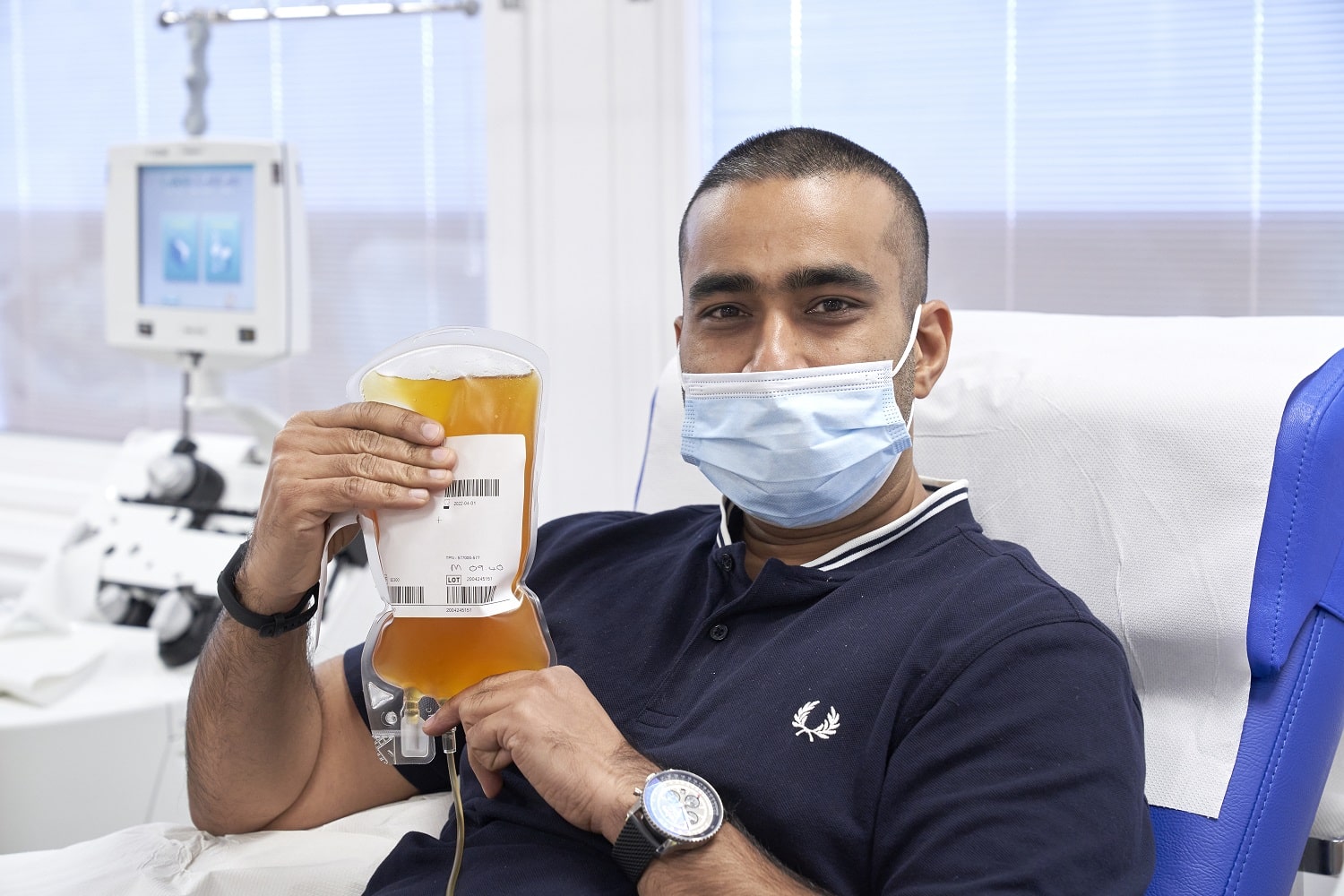
Donating plasma is a crucial way to support medical treatments and research. If you're in Kansas City and interested in contributing to this vital cause, you're in the right place. In this guide, we'll explore the various locations where to donate plasma in Kansas City, ensuring you have all the information you need to make a positive impact on your community.
The History Of Donating Plasma In Kansas City
The practice of donating plasma in Kansas City has a rich history that traces back several decades. This act of benevolence has evolved alongside advancements in medical science and has played a pivotal role in supporting critical healthcare needs. Here is a chronological overview of the history of where to donate plasma in Kansas City.
Early Beginnings
The concept of plasma donation gained traction in Kansas City in the mid-20th century. As medical understanding of the importance of plasma in treating various conditions grew, so did the need for a steady supply. Early efforts focused on educating the community about the significance of plasma donation and establishing the infrastructure to facilitate this process.
Emergence Of Plasma Centers
In the 1960s and 1970s, dedicated plasma centers began to emerge in Kansas City. These centers were equipped with specialized facilities and trained medical staff to ensure the safe collection and processing of plasma. They provided a structured environment for donors to contribute to the growing demand for plasma-derived therapies.
Technological Advancements
Advancements in technology further streamlined the plasma donation process. Automated plasmapheresis systems were introduced, allowing for more efficient and comfortable plasma collection. These innovations not only increased the ease of donation but also enhanced the quality and safety of the collected plasma.
Response To Healthcare Crises
Throughout the years, Kansas City's plasma donation centers have played a critical role in responding to various healthcare crises. During outbreaks of infectious diseases or other emergencies, these centers worked tirelessly to meet the increased demand for plasma-derived products. Their rapid response and dedication to the community underscored the vital role they play in healthcare infrastructure.
Expansion And Accessibility
As the need for plasma-derived therapies continued to grow, so did the number of plasma donation centers in Kansas City. This expansion ensured that donors had convenient access to facilities, making it easier for individuals to contribute to this life-saving endeavor. The presence of multiple centers also helped diversify the donor pool, further strengthening the community's collective impact.
Collaborations And Research
Kansas City's plasma donation centers have actively engaged in collaborations with research institutions and pharmaceutical companies. These partnerships have been instrumental in advancing medical science and developing innovative therapies. The expertise and resources within the Kansas City plasma donation community have contributed to significant strides in healthcare research.
Continued Commitment
Today, Kansas City remains a hub for plasma donation, with multiple reputable centers serving the community. The legacy of compassion and commitment to saving lives through plasma donation continues to thrive. Donors in Kansas City play a vital role in the global network of plasma collection, ensuring that patients worldwide have access to critical treatments.
The Importance Of Plasma Donation
Plasma, often referred to as the "liquid gold" of blood, plays a pivotal role in modern medicine. This crucial component constitutes about 55% of our total blood volume and is teeming with essential proteins, antibodies, and clotting factors. Here's a closer look at why donating plasma is a vital act of benevolence:
Life-Saving Treatments
Plasma is a cornerstone in the treatment of a wide array of medical conditions. Patients suffering from severe burns, trauma, and immune deficiencies heavily rely on plasma-derived therapies. The clotting factors in plasma are indispensable for individuals with bleeding disorders like hemophilia. Furthermore, those battling autoimmune diseases and certain types of cancer benefit immensely from plasma-based treatments.
Research And Development
The study of plasma is instrumental in advancing medical science. Researchers use plasma to develop new therapies and medications, unlocking potential cures for diseases that were once considered incurable. By donating plasma, individuals directly contribute to the progress of medical research, potentially paving the way for groundbreaking discoveries.
Global Impact
Plasma donation has a far-reaching impact that transcends borders. The collected plasma is processed into various life-saving products, which are distributed worldwide to support medical facilities and patients in need. This global network ensures that no matter where in the world a patient may be, they have access to critical treatments made possible through plasma donation.
Support For Immunocompromised Individuals
For individuals with weakened immune systems, plasma donations are a lifeline. Immunoglobulins found in plasma help bolster the immune response, providing much-needed defense against infections. It is particularly crucial for those undergoing chemotherapy, organ transplants, or dealing with autoimmune disorders, who often face heightened vulnerability to infections.
Natural Disasters And Emergencies
During times of crisis, such as natural disasters or pandemics, the demand for plasma escalates. Donated plasma plays a pivotal role in providing emergency medical care to those affected. It forms an essential part of disaster response plans, ensuring that critical medical supplies are readily available to those who need them most.
Continuous Need
The demand for plasma is constant. Unlike whole blood, which has a relatively short shelf life, plasma can be frozen and stored for extended periods. It allows healthcare facilities to maintain a steady supply of plasma-derived products, ensuring that patients have access to life-saving treatments whenever they are required.
Plasma Donation Centers In Kansas City - Where To Donate Plasma In Kansas City
When it comes to making a difference in your community, donating plasma is a powerful way to contribute to the health and well-being of others. In Kansas City, there are several reputable plasma donation centers where you can make a positive impact. Let's explore some of the top options for where to donate plasma in Kansas City.
CSL Plasma - Kansas City
CSL Plasma is a leading name in the world of plasma donation, and its center in Kansas City lives up to its reputation. Located at [Insert Address], CSL Plasma provides a safe and comfortable environment for donors. With a rigorous screening process, both donors and recipients can be assured of safety. The center's convenient hours make it an excellent choice for those considering where to donate plasma in Kansas City.
BPL Plasma - Kansas City
If you're looking for a friendly and efficient plasma donation center, BPL Plasma in Kansas City is an excellent choice. Situated at [Insert Address], BPL Plasma has earned a reputation for its dedicated staff and streamlined donation process. Donors can expect a thorough screening process and a clean, organized facility. By choosing BPL Plasma, you're directly contributing to the supply of plasma needed for critical medical treatments.
Grifols Plasma - Kansas City
Grifols Plasma, a global healthcare company, operates a center in Kansas City with a solid commitment to donor safety and satisfaction. Located at [Insert Address], this center provides a welcoming environment for donors. The donation process is straightforward, and the experienced professionals at Grifols Plasma ensure a seamless experience. Choosing Grifols Plasma is a trusted decision when considering where to donate plasma in Kansas City.
Talecris Plasma Resources - Kansas City
Talecris Plasma Resources is another excellent option for those looking to donate plasma in Kansas City. Their center, located at [Insert Address], places a significant emphasis on donor satisfaction and safety. The donation process is seamless, and the knowledgeable staff ensures that donors feel comfortable and valued throughout their visit. When contemplating where to donate plasma in Kansas City, Talecris Plasma Resources is a reliable choice.
Who Can Donate Plasma?
Generally, to be eligible to donate plasma, individuals must meet specific criteria. These criteria may vary slightly depending on the specific guidelines of the plasma donation center and local regulations. Here are some standard eligibility requirements for plasma donation.
Age
Donors typically need to be at least 18 years old, although some centers may allow 16 or 17-year-olds with parental consent.
Weight
Donors must meet minimum weight requirements, which are usually around 110 to 115 pounds (50 to 52 kilograms).
Health
Donors should be in good general health. They should not have any acute or chronic illnesses or infections. They should also not have certain medical conditions or be taking medications that might disqualify them.
Vital Signs
Blood pressure, pulse, and temperature are checked to ensure they are within normal ranges.
No High-Risk Behaviors
Individuals engaging in high-risk behaviors for infectious diseases (such as certain sexual activities, drug use, or recent tattoos or piercings) may be deferred from donating.
Travel History
Recent travel to certain countries may disqualify a donor due to concerns about infectious diseases.
No Recent Blood Transfusions
Donors who have received a blood transfusion in the past year may be ineligible.
No Recent Pregnancy
Pregnant or recently pregnant individuals may be deferred for a specific period.
No Recent Tattoos Or Body Piercings
Depending on local regulations, donors with recent tattoos or piercings may be deferred for a specific period.
No History Of Certain Medical Conditions
Some medical conditions or medications may disqualify a donor. It could include certain autoimmune disorders, certain cancers, or specific medications.
No History Of Viral Infections
Donors with a history of certain viral infections (such as HIV or hepatitis) may be permanently deferred.
The Impact Of Plasma Donation In Kansas City - How You Can Help"
Plasma donation holds a profound significance in the realm of healthcare, and in Kansas City, its impact reverberates through the lives of countless individuals. This act of generosity serves as a lifeline for patients grappling with critical medical conditions, offering hope and healing in their time of need. Here, we delve into the far-reaching effects of plasma donation in Kansas City and illuminate how you, too, can play a pivotal role in this life-saving endeavor.
Advancing Medical Treatments
The plasma collected from donors forms the foundation of various life-saving treatments. From individuals recovering from severe burns to those combating immune deficiencies, the contributions of donors in Kansas City directly translate into tangible relief for patients. Through the extraction of essential antibodies and proteins, plasma becomes a cornerstone in the arsenal of modern medicine.
Empowering Research And Innovation
Kansas City's plasma donation community stands at the forefront of medical progress. The plasma provided by generous donors fuels research endeavors aimed at developing new therapies and medications. This dedication to innovation not only refines existing treatments but also holds the promise of breakthroughs in treating conditions once deemed insurmountable.
Strengthening The Global Healthcare Network
Plasma donation transcends geographical boundaries. The collected plasma is transformed into life-saving products that are distributed globally, supporting medical facilities and patients worldwide. Whether in Kansas City or continents away, the impact of your donation resonates with individuals in need of critical treatments.
Providing Crucial Support For Immunocompromised Individuals
For those with weakened immune systems, plasma donations are a beacon of hope. Immunoglobulins found in plasma bolster the body's defenses against infections, offering a vital defense mechanism for individuals facing heightened vulnerability. This support is particularly crucial for those undergoing chemotherapy, organ transplants, or contending with autoimmune disorders.
Mobilizing Rapid Responses In Times Of Crisis
During emergencies, such as natural disasters or pandemics, the demand for plasma escalates. Kansas City's plasma donation centers rise to the occasion, ensuring that critical medical care is readily available to those affected. This preparedness and swift action highlight the essential role these centers play in times of crisis.
A Continuous Commitment To Saving Lives
The demand for plasma remains unwavering. Unlike whole blood, plasma can be frozen and stored for extended periods, allowing healthcare facilities to maintain a steady supply of plasma-derived products. It ensures that patients have access to life-saving treatments whenever the need arises.
How Long Does It Take To Donate Plasma?
A clinic worker will ask you some basic health questions, assess your weight, pulse, and blood pressure, and finger prick your blood levels when you check-in. You may read, watch TV, work, or relax while contributing.
Since you'll need to submit your health history and perform a more thorough medical exam, your first donation may take two hours. Return visits take around an hour; however, wait times vary by location.
The Side Effects Of Donating Plasma
Donating plasma in Kansas City is a valuable and potentially life-saving endeavor, but like any medical procedure, it's essential to be aware of potential side effects. It's crucial to note that while side effects are possible, they are generally mild and temporary. Here are some common side effects that donors may experience after giving plasma:
Dizziness Or Lightheadedness
After donating plasma, some individuals may experience mild dizziness or lightheadedness. It is typically temporary and can be alleviated by resting for a few minutes. It's essential to stay hydrated before and after donation to help minimize this side effect.
Bruising Or Discomfort At The Donation Site
It's not uncommon to experience some bruising or discomfort at the site where the needle was inserted. It is usually mild and should subside within a few days. Applying a cold compress and avoiding strenuous activity in the area can help alleviate any discomfort.
Fatigue Or Weakness
Donors may occasionally feel a slight sense of fatigue or weakness after giving plasma. It is usually temporary and can be mitigated by taking it easy for a short period. Adequate rest and proper nutrition can help the body recover more quickly.
Nausea Or Upset Stomach
Some individuals may experience mild nausea or an upset stomach after plasma donation. It is typically short-lived and can be alleviated by eating a light snack and drinking water. If the symptoms persist or worsen, it's essential to inform the donation center staff.
Tingling Or Numbness
In rare cases, donors may experience a temporary sensation of tingling or numbness, particularly in the fingers or around the mouth. It is usually due to changes in calcium levels during the donation process and typically resolves on its own.
Allergic Reaction
While uncommon, some individuals may have an allergic reaction to the anticoagulant used during the donation process. Donation center staff are trained to recognize and manage allergic reactions promptly.
Donating Plasma In Kansas City - A Life-saving Opportunity
Donating plasma in Kansas City is more than a charitable act; it is a direct avenue to saving lives. This selfless endeavor has a profound impact on the healthcare landscape, providing crucial support to individuals facing critical medical conditions. Here, we explore the significance of donating plasma in Kansas City and the extraordinary opportunity it presents to make a life-altering difference.
Essential Contribution To Medical Treatments
The plasma extracted from donors in Kansas City serves as a fundamental building block for a myriad of life-saving treatments. From aiding patients recovering from severe burns to fortifying the immune systems of those grappling with deficiencies, the contributions of donors directly translate into tangible relief. Through the collection of vital antibodies and proteins, plasma emerges as a linchpin in the arsenal of modern medicine.
Pioneering Research And Breakthroughs
Kansas City's plasma donation community stands as a vanguard of medical progress. The plasma provided by generous donors propels research endeavors, fueling the development of innovative therapies and medications. This dedication to innovation not only refines existing treatments but also holds the promise of groundbreaking discoveries, potentially transforming the landscape of healthcare.
Fostering A Global Network Of Healthcare Support
Plasma donation knows no borders. The collected plasma is transformed into life-saving products that traverse the globe, extending support to medical facilities and patients worldwide. Whether in Kansas City or continents away, the impact of your donation resonates with individuals in need of critical treatments.
Vital Assistance For Immunocompromised Individuals
For those with compromised immune systems, plasma donations serve as a beacon of hope. Immunoglobulins present in plasma bolster the body's defenses against infections, offering a vital defense mechanism for individuals facing heightened vulnerability. This support is particularly crucial for those undergoing chemotherapy, organ transplants, or navigating autoimmune disorders.
Mobilizing Swift Responses In Times Of Crisis
In moments of emergency, such as natural disasters or pandemics, the demand for plasma escalates. Kansas City's plasma donation centers rise to the occasion, ensuring that critical medical care is readily available to those affected. This preparedness and swift action underscore the essential role these centers play in times of crisis.
A Continuous Commitment To Preserving Lives
The demand for plasma remains steadfast. Unlike whole blood, plasma can be frozen and stored for extended periods, allowing healthcare facilities to maintain a consistent supply of plasma-derived products. It ensures that patients have access to life-saving treatments whenever the need arises.
Where To Donate Plasma In Kansas City - FAQs
Are There Any Eligibility Criteria For Donating Plasma In Kansas City?
Yes, there are specific eligibility criteria for plasma donation. These may include age, weight, health status, and certain lifestyle factors. It's advisable to check with the individual plasma donation center for their specific requirements.
Where To Donate Plasma In Kansas City?
There are several reputable plasma donation centers in Kansas City, including CSL Plasma, BPL Plasma, Grifols Plasma, and Talecris Plasma Resources.
Who Is Best Suited To Donate Plasma?
Plasma donation works best with AB-positive and negative blood. Plasma donation is allowed 13 times per year, every 28 days.
What Is Plasma Donation Used For?
For what is blood plasma used? Trauma, burn, shock, severe liver illness, and multiple clotting factor deficiency patients get plasma. It improves blood coagulation and blood volume, preventing shock.
How Much Is Plasma Worth?
Plasma donation clinics usually pay $30–$60 for each donation session, depending on many criteria. Selling plasma has downsides. Find out all about this side gig here.
What Is The Difference Between Donating Blood And Plasma?
Whole blood donations—red blood cells, white blood cells, platelets, and plasma—treat blood loss after injury or surgery. Plasma donation is different since it collects one component of whole blood and returns the other three.
Conclusion
Kansas City offers several reputable plasma donation centers, each dedicated to providing a safe and comfortable environment for donors. CSL Plasma, BPL Plasma, Grifols Plasma, and Talecris Plasma Resources are all excellent options for those looking to make a positive impact on their community.
By donating plasma, you're directly contributing to life-saving medical treatments and supporting individuals in need. Choose a location that suits your schedule and preferences, and take the first step toward making a difference. Where to donate plasma in Kansas City is a question with multiple answers, but the impact of your donation remains the same – it can save lives. Visit one of these centers today and become a vital part of the life-saving process.
Jump to
The History Of Donating Plasma In Kansas City
The Importance Of Plasma Donation
Plasma Donation Centers In Kansas City - Where To Donate Plasma In Kansas City
Who Can Donate Plasma?
The Impact Of Plasma Donation In Kansas City - How You Can Help"
How Long Does It Take To Donate Plasma?
The Side Effects Of Donating Plasma
Donating Plasma In Kansas City - A Life-saving Opportunity
Where To Donate Plasma In Kansas City - FAQs
Conclusion

Mia Thompson
Author
Mia Thompson is a versatile writer at Kansas Press, delving into a range of topics including news, spiritual exploration, astrology, and numerology. With a passion for delivering insightful and informative content, Mia's articles provide readers with valuable perspectives and thought-provoking insights into these intriguing subjects.
She is dedicated to creating content that resonates with readers and fosters a deeper understanding of complex topics.

Calvin Penwell
Reviewer
Since diving into numerology in 1997, my path has been marked by extraordinary encounters and insights. A pivotal moment was uncovering a forgotten numerological manuscript in a tucked-away Italian library, which deepened my connection to the ancient wisdom of numbers. Another transformative experience was a meditation retreat in Nepal's tranquil mountains, where I honed my intuition and the art of interpreting numerical vibrations.
These adventures have not only enriched my numerological practice but also my ability to guide others towards understanding their destiny and life's purpose. My approach is deeply personal, rooted in a blend of historical knowledge and intuitive insight, aimed at helping individuals find their alignment with the universe's abundant energies. My mission is simple: to share the power of numerology in illuminating paths to abundance and fulfillment.
Latest Articles
Popular Articles
